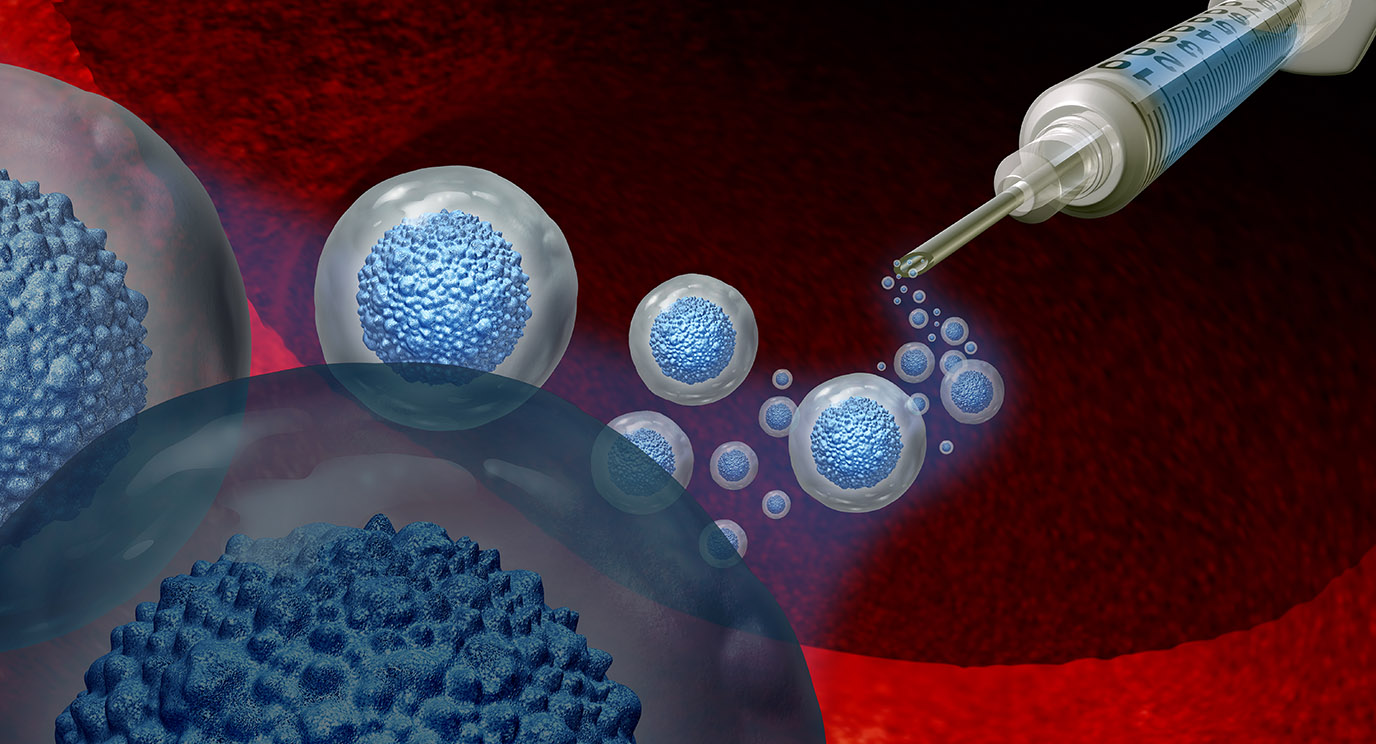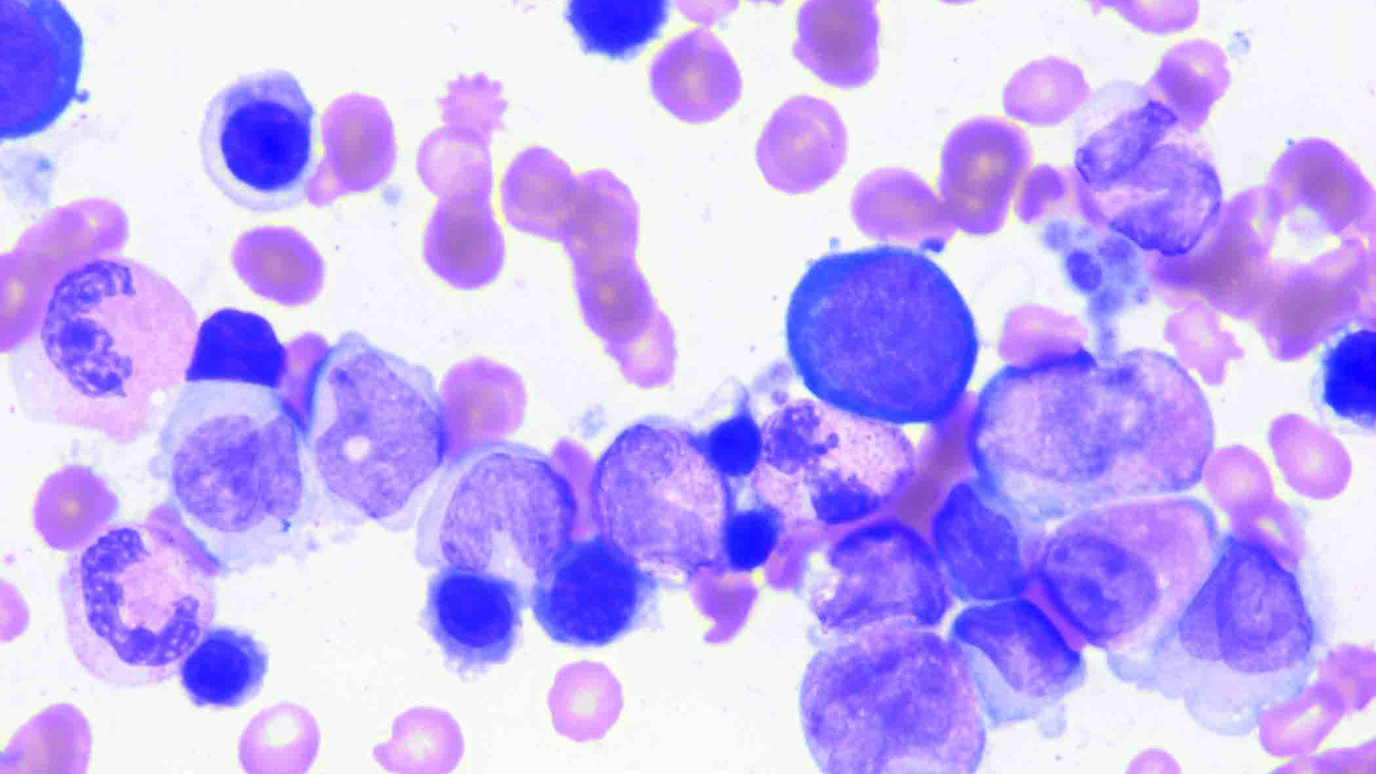CAR NK therapy: An immunotherapy for blood cancers
- Diseases
- Acoustic Neuroma (16)
- Adrenal Gland Tumor (24)
- Anal Cancer (70)
- Anemia (2)
- Appendix Cancer (18)
- Bile Duct Cancer (26)
- Bladder Cancer (74)
- Brain Metastases (28)
- Brain Tumor (234)
- Breast Cancer (728)
- Breast Implant-Associated Anaplastic Large Cell Lymphoma (2)
- Cancer of Unknown Primary (4)
- Carcinoid Tumor (8)
- Cervical Cancer (164)
- Colon Cancer (168)
- Colorectal Cancer (118)
- Endocrine Tumor (4)
- Esophageal Cancer (44)
- Eye Cancer (36)
- Fallopian Tube Cancer (8)
- Germ Cell Tumor (4)
- Gestational Trophoblastic Disease (2)
- Head and Neck Cancer (14)
- Kidney Cancer (130)
- Leukemia (342)
- Liver Cancer (50)
- Lung Cancer (286)
- Lymphoma (278)
- Mesothelioma (14)
- Metastasis (30)
- Multiple Myeloma (100)
- Myelodysplastic Syndrome (60)
- Myeloproliferative Neoplasm (6)
- Neuroendocrine Tumors (16)
- Oral Cancer (102)
- Ovarian Cancer (178)
- Pancreatic Cancer (162)
- Parathyroid Disease (2)
- Penile Cancer (14)
- Pituitary Tumor (6)
- Prostate Cancer (150)
- Rectal Cancer (58)
- Renal Medullary Carcinoma (6)
- Salivary Gland Cancer (14)
- Sarcoma (238)
- Skin Cancer (302)
- Skull Base Tumors (56)
- Spinal Tumor (12)
- Stomach Cancer (66)
- Testicular Cancer (28)
- Throat Cancer (92)
- Thymoma (6)
- Thyroid Cancer (100)
- Tonsil Cancer (30)
- Uterine Cancer (86)
- Vaginal Cancer (18)
- Vulvar Cancer (22)
- Cancer Topic
- Adolescent and Young Adult Cancer Issues (22)
- Advance Care Planning (12)
- Biostatistics (2)
- Blood Donation (18)
- Bone Health (8)
- COVID-19 (360)
- Cancer Recurrence (120)
- Childhood Cancer Issues (120)
- Clinical Trials (628)
- Complementary Integrative Medicine (22)
- Cytogenetics (2)
- DNA Methylation (4)
- Diagnosis (240)
- Epigenetics (6)
- Fertility (62)
- Follow-up Guidelines (2)
- Health Disparities (14)
- Hereditary Cancer Syndromes (128)
- Immunology (18)
- Li-Fraumeni Syndrome (8)
- Mental Health (122)
- Molecular Diagnostics (8)
- Pain Management (62)
- Palliative Care (8)
- Pathology (10)
- Physical Therapy (18)
- Pregnancy (18)
- Prevention (940)
- Research (390)
- Second Opinion (78)
- Sexuality (16)
- Side Effects (616)
- Sleep Disorders (10)
- Stem Cell Transplantation Cellular Therapy (216)
- Support (408)
- Survivorship (330)
- Symptoms (182)
- Treatment (1794)
CAR NK cell therapy now an experimental treatment option for multiple cancers
4 minute read | Published May 15, 2024
Medically Reviewed | Last reviewed by an MD Anderson Cancer Center medical professional on May 15, 2024
CAR NK cell therapy bolsters the body’s innate ability to fight cancer by attaching molecules called chimeric antigen receptors (CAR) to natural killer cells (NK cells). These receptors allow the newly enhanced CAR NK cells to recognize targets on the surface of previously “invisible” cancer cells and attack them.
At MD Anderson, this novel form of immunotherapy was initially offered only through clinical trials to patients with chronic lymphocytic leukemia or non-Hodgkin lymphoma. But preliminary results were so positive that this still-experimental therapy is now being considered to treat a much wider range of diseases, including some solid tumors.
“We’ve expanded our research efforts with CAR NK cell therapy to include breast cancer, ovarian cancer, pancreatic cancer, renal cell carcinoma, osteosarcoma, glioblastoma, acute myeloid leukemia, multiple myeloma, and even certain autoimmune diseases, such as lupus and systemic sclerosis,” says cellular therapy specialist Katy Rezvani, M.D., Ph.D.
An experimental, ready-to-use blood cancer treatment
Because CAR NK therapy uses cells from donated umbilical cord blood, it can be made ahead of time and frozen until needed. This is different from some types of adoptive cellular therapy, like CAR T cell therapy, which requires a few weeks to prepare because it's patient-specific.
“From just one cord blood donation, it is possible to generate hundreds of doses of CAR NK therapy for use with multiple patients,” Rezvani says. “And, because we source the cells from MD Anderson’s own Cord Blood Bank and all of the manufacturing is done in-house, we now have an off-the-shelf product available, so it’s ready to be thawed and infused as soon as a patient needs it."
CAR NK cell therapy has two phases
Before you can receive CAR NK therapy, you’ll need to receive chemotherapy for three consecutive days. The job of this chemotherapy isn’t to fight the cancer but to prepare your body for the modified NK cells.
After a two-day break, you’ll then receive a single dose of CAR NK therapy. It’s delivered through one of your veins – just like a blood transfusion.
“We have to get rid of the immune cells that are already in place so the incoming CAR NK cells can proliferate and do their job,” Rezvani says. “Induction or conditioning chemotherapy prevents patients’ bodies from rejecting the new cells the minute they’re infused.”
CAR NK therapy kills cancer quickly, with fewer side effects
Rezvani and her team have learned CAR NK therapy attacks cancer quickly.
“CAR NK cells work very rapidly,” says Rezvani of her team’s initial research, which was published in the Feb. 6, 2020, issue of the New England Journal of Medicine. Of the 11 patients treated in that study, eight responded to therapy and seven of those no longer showed evidence of disease.
A follow-up published in Nature Medicine in January 2024 showed that some patients maintained their remission for at least a year after treatment. This suggests that CAR NK cells are continuing to look for cancer cells.
“Our hope is to provide treatment that results in long-term remission,” notes Rezvani. “But we only have data for one year after the clinical trial. So, while it’s conceivable, we just don’t know yet.”
CAR NK cell therapy causes minimal side effects
Another benefit of CAR NK cell therapy is that patients continue to show minimal side effects from it.
“We do see some side effects from the conditioning chemotherapy, though,” Rezvani says.
The most common side effects of conditioning chemotherapy are nausea and a drop in blood counts, which can increase the risk of infection. These side effects typically appear within seven to 14 days, but they can be easily managed.
“We can give medications to prevent nausea and infections, and occasionally we’ll give a blood transfusion to increase blood counts or antibiotics to treat infections,” Rezvani says.
What’s next? Multiple targets, CRISPR cells and outpatient infusions
Though CAR NK cell therapy has not yet been approved by the Food and Drug Administration (FDA) to treat any particular cancer, researchers are refining the technique through clinical trials to make it even more effective.
“We’ve taken engineering cells beyond CAR NK now, into applications that others haven’t,” says Rezvani. “We have first-in-class CRISPR gene-edited NK cells in human clinical trials, TCR-engineered NK cells that target intracellular antigens, and we’re developing additional programs that involve either multiple targets or combining NK cells with drugs, antibodies or radiation therapy to increase their potency. We’re also looking to move CAR NK cell therapy infusions to an out-patient setting as quickly as possible, so they’ll be easier for patients to get.”
Request an appointment at MD Anderson online or call 1-877-632-6789.
Related Cancerwise Stories

Our hope is to provide treatment that results in long-term remission.
Katy Rezvani, M.D., Ph.D.
Physician & Researcher






